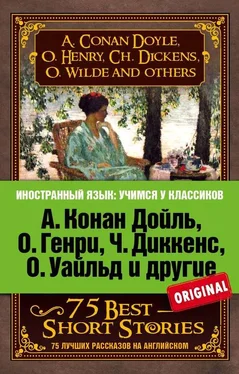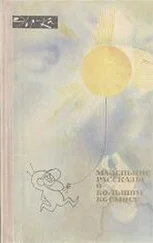She had never antecedently regarded this occupation of his as any objection to having him for a husband. Indeed, the necessity of getting life-leased at all cost, a cardinal virtue which all good mothers teach, kept her from thinking of it at all till she had closed with William, had passed the honeymoon, and reached the reflecting stage. Then, like a person who has stumbled upon some object in the dark, she wondered what she had got; mentally walked round it, estimated it; whether it were rare or common; contained gold, silver, or lead; were a clog or a pedestal, everything to her or nothing.
She came to some vague conclusions, and since then had kept her heart alive by pitying her proprietor’s obtuseness and want of refinement, pitying herself, and letting off her delicate and ethereal emotions in imaginative occupations, daydreams, and night-sighs, which perhaps would not much have disturbed William if he had known of them.
Her figure was small, elegant, and slight in build, tripping, or rather bounding, in movement. She was dark-eyed, and had that marvelously bright and liquid sparkle in each pupil which characterizes persons of Ella’s cast of soul, and is too often a cause of heartache to the possessor’s male friends, ultimately sometimes to herself. Her husband was a tall, long-featured man, with a brown beard; he had a pondering regard; and was, it must be added, usually kind and tolerant to her. He spoke in squarely shaped sentences, and was supremely satisfied with a condition of sublunary things which made weapons a necessity.
Husband and wife walked till they had reached the house they were in search of, which stood in a terrace facing the sea, and was fronted by a small garden of windproof and salt-proof evergreens, stone steps leading up to the porch. It had its number in the row, but, being rather larger than the rest, was in addition sedulously distinguished as Coburg House by its landlady, though everybody else called it ‘Thirteen, New Parade.’ The spot was bright and lively now; but in winter it became necessary to place sandbags against the door, and to stuff up the keyhole against the wind and rain, which had worn the paint so thin that the priming and knotting showed through.
The householder, who had been watching for the gentleman’s return, met them in the passage, and showed the rooms. She informed them that she was a professional man’s widow, left in needy circumstances by the rather sudden death of her husband, and she spoke anxiously of the conveniences of the establishment.
Mrs. Marchmill said that she liked the situation and the house; but, it being small, there would not be accommodation enough, unless she could have all the rooms.
The landlady mused with an air of disappointment. She wanted the visitors to be her tenants very badly, she said, with obvious honesty. But unfortunately two of the rooms were occupied permanently by a bachelor gentleman. He did not pay season prices, it was true; but as he kept on his apartments all the year round, and was all extremely nice and interesting young man, who gave no trouble, she did not like to turn him out for a month’s ‘let,’ even at a high figure. ‘Perhaps, however,’ she added, ‘he might offer to go for a time.’
They would not hear of this, and went back to the hotel, intending to proceed to the agent’s to inquire further. Hardly had they sat down to tea when the landlady called. Her gentleman, she said, had been so obliging as to offer to give up his rooms three or four weeks rather than drive the newcomers away.
‘It is very kind, but we won’t inconvenience him in that way,’ said the Marchmills.
‘O, it won’t inconvenience him, I assure you!’ said the landlady eloquently. ‘You see, he’s a different sort of young man from most – dreamy, solitary, rather melancholy – and he cares more to be here when the south-westerly gales are beating against the door, and the sea washes over the Parade, and there’s not a soul in the place, than he does now in the season. He’d just as soon be where, in fact, he’s going temporarily to a little cottage on the Island opposite, for a change.’ She hoped therefore that they would come.
The Marchmill family accordingly took possession of the house next day, and it seemed to suit them very well. After luncheon Mr. Marchmill strolled out toward the pier, and Mrs. Marchmill, having despatched the children to their outdoor amusements on the sands, settled herself in more completely, examining this and that article, and testing the reflecting powers of the mirror in the wardrobe door.
In the small back sitting room, which had been the young bachelor’s, she found furniture of a more personal nature than in the rest. Shabby books, of correct rather than rare editions, were piled up in a queerly reserved manner in corners, as if the previous occupant had not conceived the possibility that any incoming person of the season’s bringing could care to look inside them. The landlady hovered on the threshold to rectify anything that Mrs. Marchmill might not find to her satisfaction.
‘I’ll make this my own little room,’ said the latter, ‘because the books are here. By the way, the person who has left seems to have a good many. He won’t mind my reading some of them, Mrs. Hooper, I hope?’
‘O, dear no, ma’am. Yes, he has a good many. You see, he is in the literary line himself somewhat. He is a poet – yes, really a poet – and he has a little income of his own, which is enough to write verses on, but not enough for cutting a figure, even if he cared to.’
‘A Poet! O, I did not know that.’
Mrs. Marchmill opened one of the books, and saw the owner’s name written on the title-page. ‘Dear me!’ she continued; ‘I know his name very well – Robert Trewe – of course I do; and his writings! And it is his rooms we have taken, and him we have turned out of his home?’
Ella Marchmill, sitting down alone a few minutes later, thought with interested surprise of Robert Trewe. Her own latter history will best explain that interest. Herself the only daughter of a struggling man of letters, she had during the last year or two taken to writing poems, in an endeavor to find a congenial channel in which let flow her painfully embayed emotions, whose former limpidity and sparkle seemed departing in the stagnation caused by the routine of a practical household and the gloom of bearing children to a commonplace father. These poems, subscribed with masculine pseudonym, had appeared in various obscure magazines, and in two cases in rather prominent ones. In the second of the latter the page which bore her effusion at the bottom, in smallish print, bore at the top, in large print, a few verses on the same subject by this very man, Robert Trewe. Both of them, had, in fact, been struck by a tragic incident reported in the daily papers, and had used it simultaneously as an inspiration, the editor remarking in a note upon the coincidence, and that the excellence of both poems prompted him to give them together.
After that event Ella, otherwise ‘John Ivy,’ had watched with much attention the appearance anywhere in print of verse bearing the signature of Robert Trewe, who, with a man’s unsusceptibility on the question of sex, had never once thought of passing himself off as a woman. To be sure, Mrs. Marchmill had satisfied herself with a sort of reason for doing the contrary in her case; since nobody might believe in her inspiration if they found that the sentiments came from a pushing tradesman’s wife, from the mother of three children by a matter-of-fact small-arms manufacturer.
Trewe’s verse contrasted with that of the rank and file of recent minor poets in being impassioned rather than ingenious, luxuriant rather than finished. Neither symbolist [251]nor decadent [252], he was a pessimist in so far as that character applies to a man who looks at the worst contingencies as well as the best in the human condition. Being little attracted by excellences of form and rhythm apart from content, he sometimes, when feeling outran his artistic speed, perpetrated sonnets in the loosely rhymed Elizabethan fashion [253], which every right-minded reviewer said he ought not to have done.
Читать дальше
Конец ознакомительного отрывка
Купить книгу












